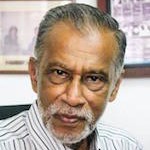A Brief Colonial History Of Ceylon(SriLanka)
Sri Lanka: One Island Two Nations
A Brief Colonial History Of Ceylon(SriLanka)
Sri Lanka: One Island Two Nations
(Full Story)
Search This Blog
Back to 500BC.
==========================
Thiranjala Weerasinghe sj.- One Island Two Nations
?????????????????????????????????????????????????Wednesday, August 1, 2018
Elections & Future Of Democracy In Pakistan

 Pakistanis have voted Imran Khan and
his Pakistan Tehreek-e-Insaf (PTI) party to power in the general
elections held on 25 July 2018. This was a remarkable departure from the
tradition of voting for Pakistan Muslim League and the Pakistan
People’s Party. This is also sent a clear message to the politicians who
dominated Pakistani politics ignoring the burning issues of the
country.
Pakistanis have voted Imran Khan and
his Pakistan Tehreek-e-Insaf (PTI) party to power in the general
elections held on 25 July 2018. This was a remarkable departure from the
tradition of voting for Pakistan Muslim League and the Pakistan
People’s Party. This is also sent a clear message to the politicians who
dominated Pakistani politics ignoring the burning issues of the
country.
Former Prime Minister Nawaz Sheriff, disqualified as he was found guilty
of financial corruption, is now serving a ten year sentence. Corruption
has been one of the main issues blocking smooth functioning of
democracy.
For example Nawaz Sheriff and the assassinated Prime Minister Benazir
Bhutto were each elected thrice as prime ministers. All three times both
were sacked due to corruption.
Founder of Pakistan Quaid E Azam Mohammad Ali Jinnah told on 9 June 1947
that “I do not know what the ultimate shape of the constitution is
going to be, but I am sure it will be a democratic type, embodying the
essential principles of Islam”.
It can be safely assumed that on that day the two philosophies outlined
by the founder as the basis of any future government in Pakistan were
Islam and democracy.
However Islam and democracy were floundered at the hands of their
keepers. Islam exploited shamelessly by those that pretend to be its
defenders has divided instead of uniting the nation and democracy has
been reduced to a sham by those that never tire to proclaim themselves
as its guardians.
Since establishment in 1947, Pakistan has been facing lot of turbulences
in the path of democracy. The main causes of failure of democracy in
Pakistan are summarized as follows:
Overdeveloped state structure, political instability, military
intervention, and massive corruption, lack of accountability, weak
infrastructure, feudal dispensation, institutional crises,
constitutional crises, strong bureaucracy, and low level of political
socialization, extremism, weak civil society and absence of mature
leadership.
The monopolization and centralization of power have blocked while
political instability created unnecessary barriers in the process of
democracy since independence.
Military intervention has been dead blow to democracy. In Pakistan,
democracy faced four military intrusions. Massive corruption paved the
way for military to intervene in the internal affairs of country.
In the presence of corruption and absence of accountability make
infrastructure weak. Weakness of infrastructure is creating constraints
in the path of democracy.
Feudalism is threat to democracy. After emergence, feudal class had more
power and wealth. This class created barriers in the way of democracy.
Feudal class has been engaged in the accumulation of power. They are
power lusty. This power must be snatched from them for proper flow of
democracy.
Landlords and feudal cum politicians hijacked the political system. Of
the major causes of failure of democracy, the substantial ones are
related to those in authority i.e., the leadership, army and
bureaucracy.
Clash between judiciary and executive class has been threatening democratic practice.
In the initial year of establishment only two institutions were powerful
to face the challenge of early establishment. Quaideazam gave chance to
military elite and bureaucrats to complete the task of establishment.
Soon after completing the task, they maintained strong control over the
state institution which created a lot of problem for Pakistan.
Weak civil society created a big gap in the establishment of democracy. Both are dependable on each other.
Extremism has been spreading like ulcer in Pakistan. It has deep roots
in the past history. It creates a lot of hurdles in the development
process.
Lack of dynamic leadership since the death of Quaideazam
Judicial reforming is very important for the establishment of democratic
practices as judiciary is very powerful branch of government and it
needs reformation in its own spheres.
Exploring the last 70 years of Pakistan, democracy was taken as a comic
relief between military regimes. Assassination of Liaquat Ali Khan, the
first elected Prime Minister, was in fact the demise of democracy in
Pakistan.
The state must practice the principle of equal citizenship and ensure
equality of opportunity to all for advancement in social, economic and
political domains and guarantee security of life and property of its
citizens.
The failure to institutionalize participatory governance has caused much
alienation at the popular level. A good number of people feel that they
are irrelevant to power management at the federal and provincial
levels.
History is witness to the fact that Pakistan has lost territory while
under direct military rule. The dictators’ hawkish attitude has fanned
various separatist movements across the country. Absence of Democracy is
a significant reason for nurturing terrorism in a country. A democratic
government is supposed to represent the people and provide political
means to voice grievances, hence essentially providing a sphere where
terrorism has no place.

